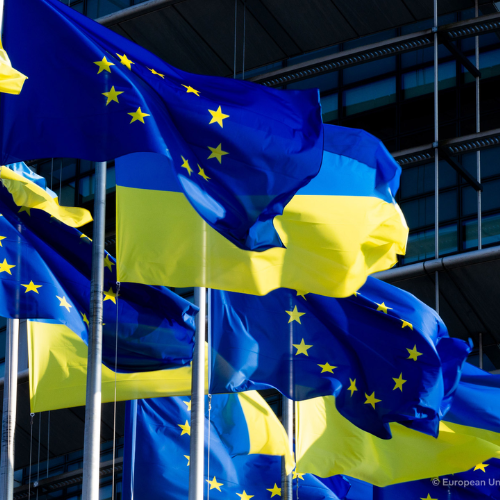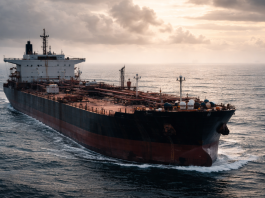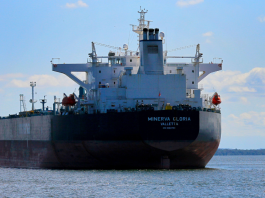Foreign ministers from across the European Union met in Luxembourg today to talk about how to better protect Ukraine as the war continues. One of the big topics was giving security guarantees to Ukraine to help the country feel safer and more supported.
One plan being discussed is something called a “coalition of the willing.” This means that some EU countries, along with the United Kingdom, are thinking about sending teams to Ukraine in the future to keep an eye on things if a ceasefire happens. These teams would not be part of a fighting force but would help make sure that any peace deal is followed properly.
However, not all EU countries agree on this plan. While some nations are ready to help, others are more careful. They want to make sure that everyone is clear about what this mission would do and how it would work. There is still a lot of talking going on before any decisions are made.
Some countries are worried that sending any type of mission, even for peacekeeping, could upset Russia. Russia has already warned that if soldiers from Western countries go into Ukraine, it might lead to more conflict. Because of this, many countries are taking a cautious approach.
SWIFT Dispute Exposes Growing Divide Between U.S. and EU on Russia Sanctions
So far, only six countries — including the UK, France, and the three Baltic nations — have said they are ready to take part in such a mission. The sixth country hasn’t been named. Others, like Italy, have already said they won’t send troops. Countries like Sweden and the Netherlands are asking important questions about the plan, like what exactly the mission would do and how it would respond if things get worse.
EU Plans 17th Set of Sanctions on Russia
While talking about Ukraine’s safety, the EU is also planning its 17th package of sanctions against Russia. Sanctions are like strict rules or punishments that stop a country from doing certain things — such as trading or using important technology — to put pressure on them.
The European Union says it wants to keep strong pressure on Russia to stop the war. That’s why the new set of sanctions is being prepared. These new steps could include restrictions on more Russian businesses, officials, or trade goods. Details are still being worked out, but EU leaders want to make sure Russia feels the effects of its actions in Ukraine.
Even though many countries in the EU support these sanctions, it can still take time to agree on them. All EU countries have to say “yes” for new sanctions to be approved. In the past, some countries have slowed down or blocked plans because they had different views. This time, the EU is trying to move quickly and show that it stands firmly with Ukraine.
Military Aid and Ukraine’s EU Journey on the Agenda
Another major point discussed was giving more military help to Ukraine. The EU is looking at a plan that could send around two million artillery shells to Ukraine. These are the large weapons used in heavy fighting. The cost of this help could be up to 5 billion euros. This idea is meant to make sure Ukraine has what it needs to defend itself.
UK Smashes Russian Oligarch Ties as Ovsiannikov Found Guilty in Sanctions Storm
EU leaders say it’s important to keep helping Ukraine not just with promises but with real support. This military help would be a big boost to Ukraine, especially as fighting continues in many areas.
At the same time, the EU is also reviewing how far Ukraine has come in joining the European Union. Ukraine wants to become a full EU member someday, but it must meet many rules and requirements first. Right now, some steps in that process are being held up, especially because one country is not agreeing to move forward.
Even with these delays, most EU members are still trying to support Ukraine’s EU journey. They believe it is an important way to show solidarity and to help the country rebuild and grow stronger.
Today’s meeting in Luxembourg shows that the European Union is still focused on helping Ukraine in many ways — through security support, military aid, and by planning new actions against Russia. But as always, not all countries in the EU see eye to eye, and many decisions still need more discussion.




